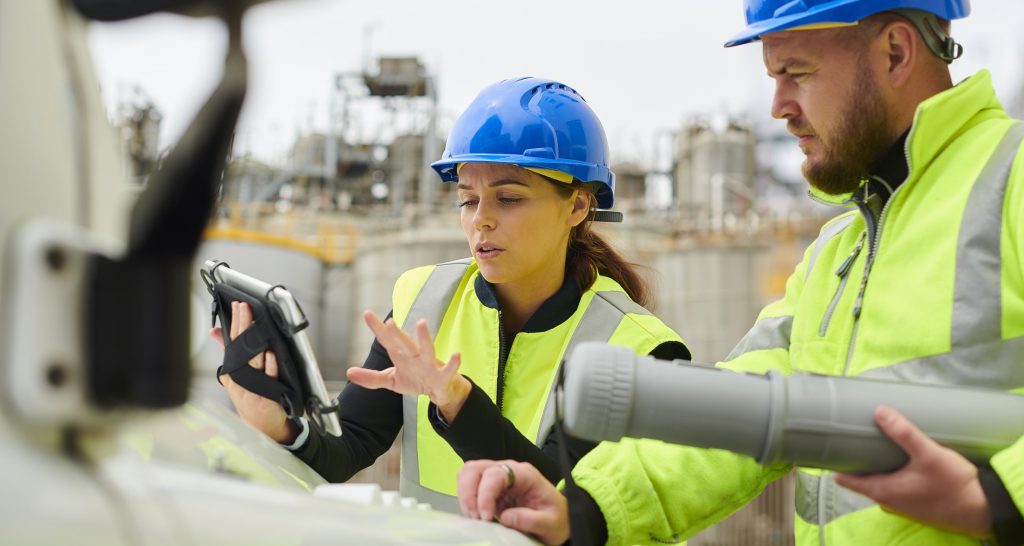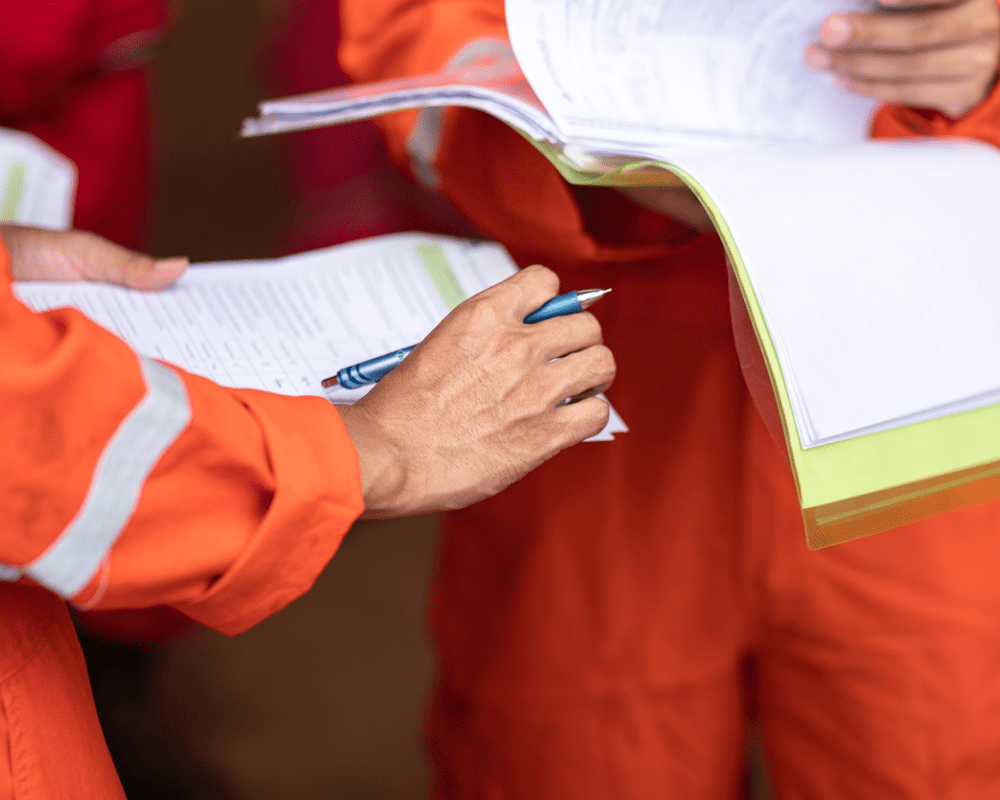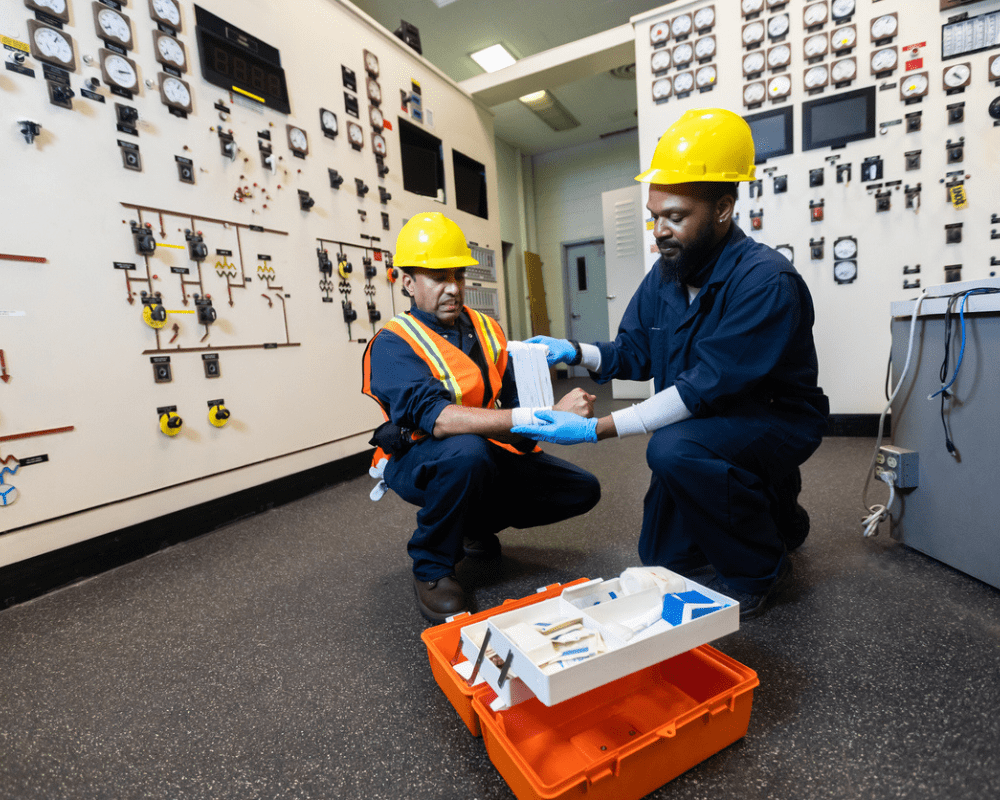If you work in the utilities sector, a Safety, Health and Environmental Awareness (SHEA) qualification is often a requirement before you can start work. These industry-recognised courses provide the essential knowledge needed to work safely, follow environmental best practice, and meet employer and site entry standards.
Choosing the right SHEA passport is important, it ensures you meet the correct safety criteria for your role and sector. This guide explains what SHEA training is, outlines each category in detail, and helps you decide which course you should take.
At a Glance: Which SHEA Passport Do You Need?
| Job Role | Recommended SHEA Passport |
| Gas engineers, meter installers, network operatives | SHEA Gas Passport |
| Electricians, substation engineers, overhead line workers | SHEA Power Training Course |
| Water treatment plant staff, pipeline engineers, network technicians | SHEA Water |
| Telecoms installers, cable maintenance crews, fibre engineers | SHEA Telecoms |
| Multi-sector contractors | SHEA Core |
| Cross-country pipeline construction teams | SHEA Cross Country Pipelines |
| Sewer and drain maintenance operatives | SHEA Drains and Sewers |
| Waste facility operatives, recycling plant staff | SHEA Waste and Resources Management |
What Is SHEA Training?
SHEA training provides core safety, health, and environmental awareness across all utility sectors. It is recognised by the Energy & Utility Skills Register (EUSR), and your qualification is recorded there once you pass. Many employers and site operators require a valid SHEA card before granting access.
While all SHEA training courses share common modules on hazard awareness, environmental protection, and legal responsibilities, each category includes sector-specific learning tailored to the risks and regulations of that industry.
Detailed Breakdown of SHEA Passports
SHEA Gas
The SHEA Gas Passport is designed for professionals in the gas industry, including engineers, meter installers, and pipeline operatives.
It covers gas network hazards, safe working practices, use of equipment, and compliance with gas-specific legislation. Completing this course is essential for gaining access to gas network sites.
SHEA Power
The SHEA Power Training Course is for those working on or near electrical power networks. It addresses electrical hazards, personal protective equipment (PPE) requirements, substation safety, and site-specific rules. Employers in the power sector often mandate this passport for operational and maintenance staff.
SHEA Water
The SHEA Water passport is required for anyone working in water treatment, distribution, or network maintenance.
Key topics include water hygiene standards, contamination prevention, working in confined spaces, and environmental protection procedures.
SHEA Telecoms
The SHEA Telecoms course is aimed at telecoms installers, maintenance teams, and engineers.
It covers telecoms-specific hazards such as underground cable safety, overhead line work, and confined space awareness.
SHEA Core
The SHEA Core passport is a versatile qualification for workers who need access to multiple utility sectors.
It covers universal health, safety, and environmental principles without focusing on one specific industry, making it suitable for multi-sector contractors.
SHEA Cross Country Pipelines
The SHEA Cross Country Pipelines course is for operatives involved in long-distance pipeline projects.
It addresses the unique challenges of remote working, environmental management, and maintaining public safety along pipeline routes.
SHEA Drains and Sewers
The SHEA Drains and Sewers course focuses on hazards specific to sewer and drain work.
Modules include biological risk awareness, confined space entry, flood prevention, and safe use of specialist equipment.
SHEA Waste and Resources Management
The SHEA Waste and Resources Management passport is essential for workers in recycling, waste handling, and resource management.
It covers safe waste processing, environmental compliance, and site-specific safety rules.
How Long Does a SHEA Course Take?
Most SHEA courses can be completed in a single day, usually lasting between six and eight hours. Training includes classroom learning, interactive activities, and a multiple-choice assessment at the end.
On successful completion, your qualification is logged with the EUSR, and you’ll receive a SHEA card valid for five years. Renewing before expiry ensures you maintain uninterrupted site access.
Choosing the Right Passport
To select the correct SHEA course:
- Check employer or client requirements – Some sites specify the exact passport you must hold.
- Match the passport to your sector – Use the comparison table above to align with your role.
- Consider future projects – If you work across sectors, the SHEA Core may be the most efficient choice.
How to Book Your SHEA Training
Enrolling is simple:
- Visit our SHEA training courses page.
- Choose the relevant passport for your sector.
- Select a date and confirm your booking online.
Our experienced trainers deliver every course to the highest industry standards, ensuring you gain the knowledge and certification you need in a single day.
Why SHEA Training Matters
SHEA passports do more than meet compliance requirements, they protect you, your colleagues, and the public. They help prevent accidents, promote environmental care, and maintain professional standards across the utilities industry.
Whether you’re in gas, power, water, telecoms, pipelines, drains, or waste management, the right SHEA training ensures you’re prepared, competent, and authorised to work.
For more information on our SHEA training courses, don’t hesitate to contact our expert team.





